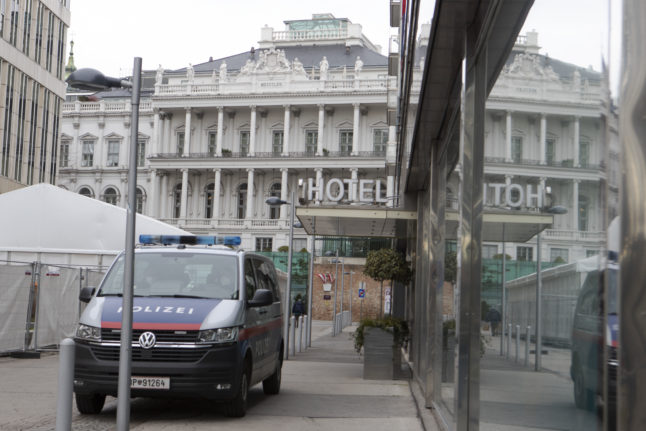Getting arrested is probably not high up on a list of must-dos for international residents in Austria, but it’s not a bad idea to know what would happen if you did.
In a nutshell, the process in Austria is similar to most other countries in that you have to be suspected of committing a crime to be arrested.
But what happens next? What are your rights? And how long can someone be held in custody?
Here’s what you need to know.
FOR MEMBERS: EXPLAINED: What cyclists and drivers in Austria need to know about new rules
When can someone be arrested in Austria?
If someone is suspected of being a criminal, they can be arrested by the police and taken to a police station for questioning.
Under the Austrian Code of Criminal Procedure, suspects must be informed of their rights as soon as possible, or at the very least before being interrogated by the police.
They also have a right to remain silent or to make a statement, as well as consult a lawyer.
According to Vienna-based attorney Evert Vastenburg, the initial detainment after arrest can last up to 48 hours while a judge decides whether a person should remain in custody or not.
A suspect can then be released on bail or under certain conditions, such as handing over a passport to police.
However, those suspected of serious crimes that typically lead to a prison sentence of 10 years or more (if found guilty) are almost always remanded in custody.
READ MORE: Austria wary of cyber attacks after personal data of foreign residents leaked online
When is someone remanded in custody?
To be refused bail and remanded in custody, there must be serious suspicion that another crime could be committed.
The judge also must believe there is no other way to deal with the suspect. For example, he/she needs to be readily available to the authorities for questioning.
Another valid reason to keep someone in custody past the initial 48 hours is the risk of someone absconding. In fact, Vastenburg says a flight risk is often assumed with people that do not live and work in Austria.
Other reasons to deny a suspect release are a risk that evidence will be destroyed, witnesses will be contacted, or there is a possibility that further crimes will be committed.
What happens if bail is denied?
If bail is denied and a person must be held in custody for more than 48 hours, they have to be legally represented by a lawyer.
If a suspect can’t afford to hire a lawyer, they will be appointed a Verfahrenshilfe (public defender) by the state.
The case will be then reviewed by a judge on a regular basis to decide if custody should continue.
The first review will take place after 14 days, then at one month and every two months, but a suspect can petition for release at any time.
READ ALSO: Six tourist scams to be aware of in Austria
How many foreigners are in Austrian prisons?
According to data from the Austrian Judiciary, the number of foreigners in Austrian jails as of June 1st 2022 was 4,332 – almost 50 percent of all prisoners.
In relation to the statistics, the Austrian Judiciary states: “The high proportion of foreigners is one of many challenges for the Austrian penal system.
“In particular, with regard to successful rehabilitation, the fastest possible transfer to the countries of origin is encouraged.”
The most common nationality of foreign prisoners in Austria is Romanian, followed by people from the former Yugoslavian states, Hungary, Nigeria and Turkey.



 Please whitelist us to continue reading.
Please whitelist us to continue reading.
Member comments